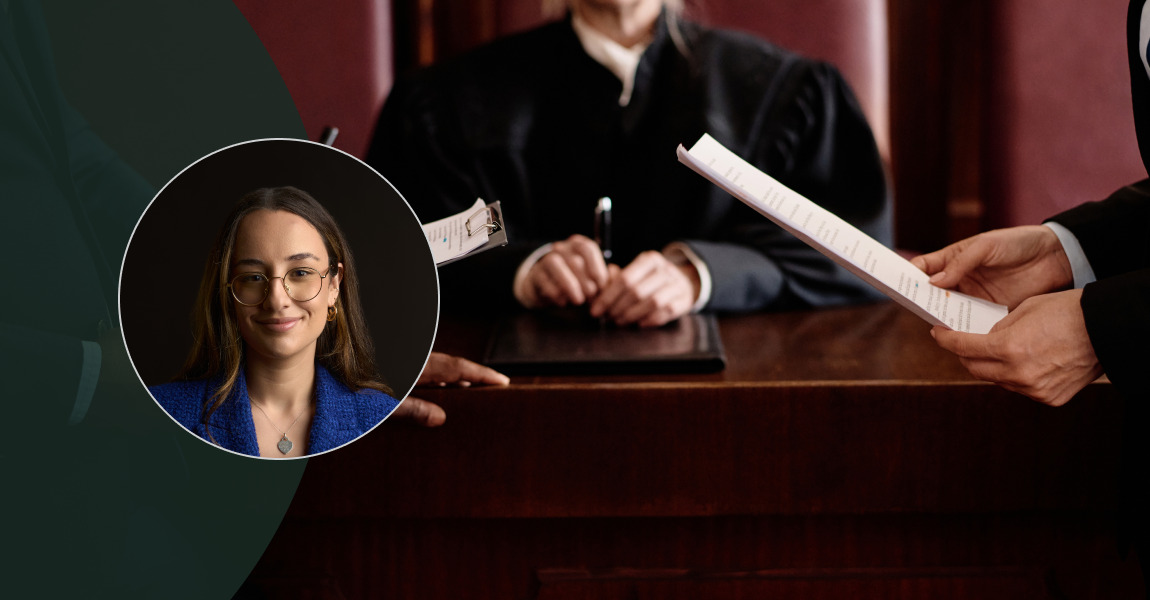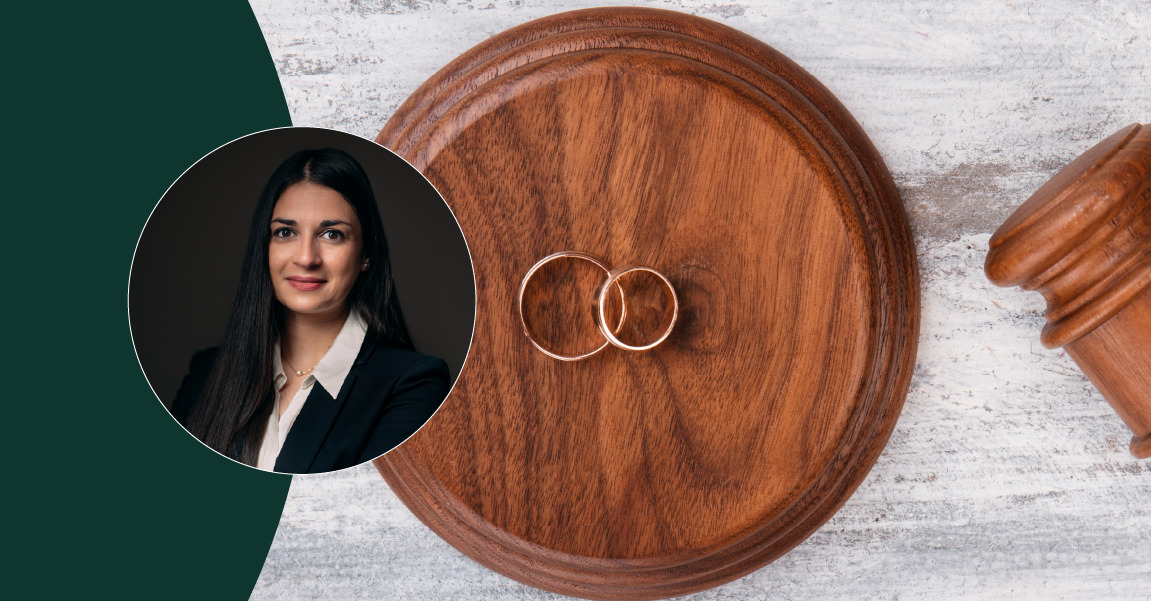
The Process of Divorce in Malta
Divorce legislation has been promulgated in the Maltese Civil Code by virtue of Act XIV of 2011, with subsequent amendments introduced through Act XXV 2021.
Each spouse has a right to demand divorce, in other words the dissolution of marriage. This can be done either jointly by both spouses or by one of the spouses against the other. The Courts of civil jurisdiction in Malta have jurisdiction to hear and determine a demand for divorce if at least one of the spouses is domiciled in Malta on the date of filing the demand for divorce or at least one of the spouses is ordinarily resident in Malta for a period of one year immediately prior to the filing of the demand for divorce.
Article 66B of the Civil Code, contains the legal requirements for a demand for divorce to be upheld.
The demand for divorce is heard if on the date of commencement of the divorce proceedings the spouses have obtained personal separation by means of a contract or by court judgement. If the spouses are not legally separated, the law provides a timeframe within which spouses may proceed with a demand for divorce. If the spouses opt for a joint application, on the date of commencement of divorce proceedings, they must have lived apart for a period of or periods that amount to at least 6 months out of the preceding year, whereas if the application is filed by one of the spouses against the other, on the date of commencement of divorce proceedings, the spouses must have lived apart for a period of or periods that amount to at least one year of the preceding two years. This entails that the period within which the spouses lived apart need not be continuous, but when taken cumulatively would amount to six months or one year respectively.
In addition to the above, the Court must be satisfied that there is no reasonable prospect of reconciliation between the spouses – this is usually confirmed by a sworn declaration of the parties, whereby they declare that they are living a separate life from each other and there is no possibility that their relationship will continue.
The Court must also be satisfied that if maintenance is due either to one of the spouses or to their children, the parties concerned are receiving adequate maintenance; payments are done regularly, and no arrears are due. For the purposes of ascertaining this, the court may order the parties to present information about the payment of the children’s maintenance. In the event, the spouse demanding divorce was bound to pay maintenance by means of a court judgement or contract and has not paid what was due, the Court shall not grant the demand for divorce where it is shown that by granting divorce it would be more difficult for the spouse concerned receive maintenance.
If the community of acquests or the community of residue under separate administration had ceased to apply between the parties prior to the institution of divorce proceedings, and the parties still hold assets in common, the parties may proceed with divorce without liquidating these assets, if they both agree to do so.
A distinction needs to be drawn between spouses who have separated by means of a contract or court judgement, and spouses who proceed to opt for divorce straight away.
Article 66D provides that when making a demand for divorce, it is not necessary for the spouse making the demand to attribute fault on the other spouse as a justification for the proceedings, as opposed to personal separation proceedings.
If a demand for divorce is made by spouses who have not separated by means of a contract or a court judgement, the spouses must first appear before a mediator, in accordance with Article 66I. The purpose for this legal provision is to attempt reconciliation between the spouses. If reconciliation is not attainable, the parties are given the opportunity to try and reach an agreement on the terms of divorce. The said agreement would need to cover the following terms: the care and custody of the children, access to the children, maintenance of the spouses and of the children, residence in the matrimonial home and the division of the community of acquests.
Regulation 4(9) of Subsidiary Legislation 12.20 provides that where the parties have not reconciled and have either agreed on the terms of the divorce or failed to reach an agreement altogether, the mediator must inform the Court accordingly. Depending on the case at hand, the Court will then grant the parties authorisation to proceed before it within a timeframe of two months. If the parties did not reach an agreement, the applicant needs to bring forward demands that are usually determined during personal separation proceedings in the divorce application; particularly in relation to the dissolution of the community of acquests, and rights and obligations of the parties with regards to their children.
Article 66G of the Civil Code, places an obligation on the advocate of an applicant who wishes to proceed with divorce immediately; to discuss the possibility of reconciliation, provide the applicant with contact details of qualified professionals to help in the process of reconciliation as well as ensure that the applicant is aware of the option of personal separation as an alternative to divorce. The same applies to the advocate assisting the respondent, as provided in article 66H. In fact, the law further provides that together with the divorce application, the advocate must present a note confirming that the above obligation has been fulfilled when the spouses are not legally separated.
The divorce application must be filed before the Civil Court (Family Section). Attached thereto, the applicant must provide a full copy of the parties’ marriage certificate, and where the applicants are separated, a legal copy of the judgement or the contract of consensual separation; whereas where the applicants were not separated, the advocates’ note as stipulated in Articles 66G and 66H. The application does not need to be confirmed on oath, however, in practice, the parties concerned draw up a sworn declaration confirming the applicability of the legal requirements for divorce as stipulated under Article 66B.
It is also possible for parties who instituted separation proceedings, to file a request pendente lite for the demand for separation to be considered a demand for the pronouncement of divorce. If the Court determines that the conditions stipulated in Article 66B are satisfied, the Court will proceed to hear and decide both demands together.
During divorce proceedings, as is permitted during separation proceedings, the wife may elect to revert to her maiden surname by means of a request to Court in this sense. The law also provides for the possibility of the husband applying to Court to forbid his wife from using his surname. This is only acceded to if he proves to Court that further use of his surname will cause him grave prejudice.
Upon the pronouncement of divorce, the right of the spouses to inherit each other, and the obligation of cohabitation between the parties cease to apply, and the divorced parties gain the right to re-marry. Divorce proceedings have no effect upon the rights and obligations of the divorced parties as parents if the parties concerned have children. The same principle applies if the divorced parties had entered into any agreements or obligations with third parties prior to the divorce judgement or decree.
Lastly, the Court orders the Registrar of Courts to notify the Director of Public Registry with the divorce between the parties for the purposes of registration. Consequently, the Annotations and Adjustments section within the Public Registry record the divorce decision in the Annotations column of the parties’ Marriage Certificate.








